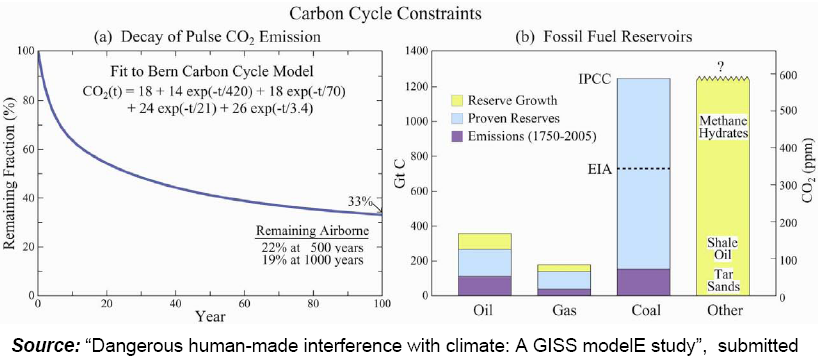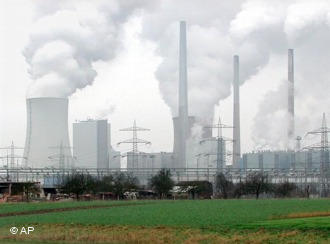Dialogue about End of Oil, Coal and CO2 emissions

... sudden resurfacing from summer hiatus...
An imaginary conversation:
Person A: C2 output (pollution) and oil consumption go hand in hand, right?
Person B: Mostly. Coal is worse than oil in this regard. You could roughly simplify the situation like this:
[Coal + oil + natural gas use] + [rainforest cutting/biomass loss] = CO2 rise
Person A: Serious problems (besides the current war for oil in Iraq and possible war in Iran) will probably become evident after 5 years to many. This based on signals in the mass media like FT, WSJ, etc.
Person B: Possible. I'd give a range of 1-7 years, maybe more, before oil shortage starts to hurt OECD countries a lot.
If one says that current oil futures price is due to only oil shortage of below ground factors (i.e. geological depletion), then shortages are already starting to hurt via price increase and resulting creeping inflation.
However, before OECD countries are hit badly, poor countries will be priced out of the market (happening for the past year and a half). Also developing countries will hit energy shortages (starting to happen at the time of writing this, in Latin America, Asia and even Eurasia).
As always with future, exact timing or effects are impossible to predict. Things could go really bad late next year, if the Kingdom of Saudi Arabia is dry and they can't raise their production, Venezuela production keeps falling and Russia does not recover.
Addition. Venezuela just informed last week (3.8.2007) that in 2008 there will be very little if any oil for export.
Person A: By the time oil product have become expensive and hard to get CO2 output will diminish. So, there is a good side to this all. No oil=less CO2.
Person B: Unlikely. We will use coal instead. Also, we may use the fastest ramping liquid fuel alternatives (i.e. food cereals to bio-fuels), which can be worse in CO2 emissions with current practices than petroleum oil (this depends on farming/logistic practices).

But why coal?
- More abundant than oil (cheap)
- We know how to produce energy out of it (easy, fast, scales)
- Competitive to make Coal-to-Liquids (oil alternatives, although not in great scale)
- China's building 500 new coal plants (no carbon sequestration)
Even if we capture CO2, Coal-to-Liquids will produce 4-8% more CO2 than burning the same amount of oil.
There is absolutely no hope of reducing CO2 emissions by burning out oil quickly, because economic growth requires energy and coal is the next available, easiest and most logical choice according to cornucopia economists.
Unless economy crashes (depression, not a mere recession). Then consumption will go down and so will energy consumption and thus, CO2 emissions.
As James Hansen of NASA/IPCC has said it (paraphrasing):
We can burn all remaining oil and still theoretically solve the climate crisis, but if we start burning the remaining coal, we have absolutely no hope left.Person A: If the "oil use=>co2 emissions" link is true, why not focus on using a lot of oil now really fast? The faster it is gone, the faster CO2 emissions go down?
Person B: As outlined above, increasing oil consumption is not sane for the CO2 emission reasons, although not necessarily catastrophic by it itself.
However, there are other reasons for using it fast (if not indiscriminately) now:
- It's available now, use it wisely now that you can afford it (build something sustainable)
- The faster we run out, the more we go cold turkey and have to radically change our way of life
a climate survival strategy or even a consumption trend? Can we burn ourselves out of the problem by making ourselves short on energy and then having to cut down on consumption radically?
Person B: Some really advocate this. Even system modelers that build world energy/CO2 models say that less people will die if we burn all remaining oil quickly, than if we burn them slowly, find alternatives in the mean time and keep growing like lemmings.
But it's just a model. Nobody knows. Maybe we all just dance into la-la-la-land on a road made of rose petals while singing Hallelujah. You're guess is as good as mine.
... back to summer, they're too short to miss...














